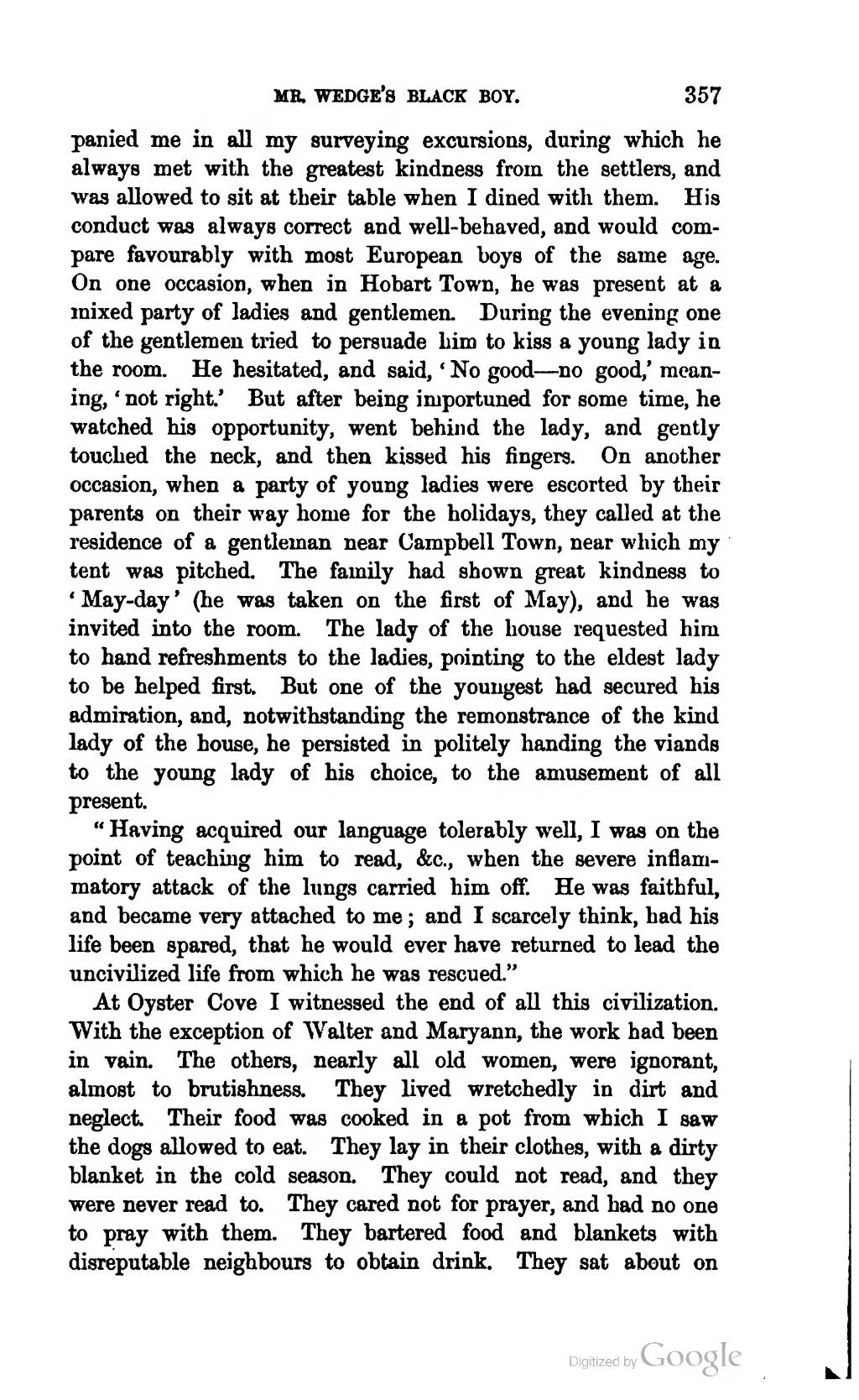panied me in all my surveying excursions, during which he always met with the greatest kindness from the settlers, and was allowed to sit at their table when I dined with them. His conduct was always correct and well-behaved, and would compare favourably with most European boys of the same age. On one occasion, when in Hobart Town, he was present at a mixed party of ladies and gentlemen. During the evening one of the gentlemen tried to persuade him to kiss a young lady in the room. He hesitated, and said, 'No good—no good,' meaning, 'not right.' But after being importuned for some time, he watched his opportunity, went behind the lady, and gently touched the neck, and then kissed his fingers. On another occasion, when a party of young ladies were escorted by their parents on their way home for the holidays, they called at the residence of a gentleman near Campbell Town, near which my tent was pitched. The family had shown great kindness to 'May-day' (he was taken on the first of May), and he was invited into the room. The lady of the house requested him to hand refreshments to the ladies, pointing to the eldest lady to be helped first. But one of the youngest had secured his admiration, and, notwithstanding the remonstrance of the kind lady of the house, he persisted in politely handing the viands to the young lady of his choice, to the amusement of all present.
"Having acquired our language tolerably well, I was on the point of teaching him to read, &c., when the severe inflammatory attack of the lungs carried him off. He was faithful, and became very attached to me; and I scarcely think, had his life been spared, that he would ever have returned to lead the uncivilized life from which he was rescued."
At Oyster Cove I witnessed the end of all this civilization. With the exception of Walter and Maryann, the work had been in vain. The others, nearly all old women, were ignorant, almost to brutishness. They lived wretchedly in dirt and neglect Their food was cooked in a pot from which I saw the dogs allowed to eat. They lay in their clothes, with a dirty blanket in the cold season. They could not read, and they were never read to. They cared not for prayer, and had no one to pray with them. They bartered food and blankets with disreputable neighbours to obtain drink. They sat about on
